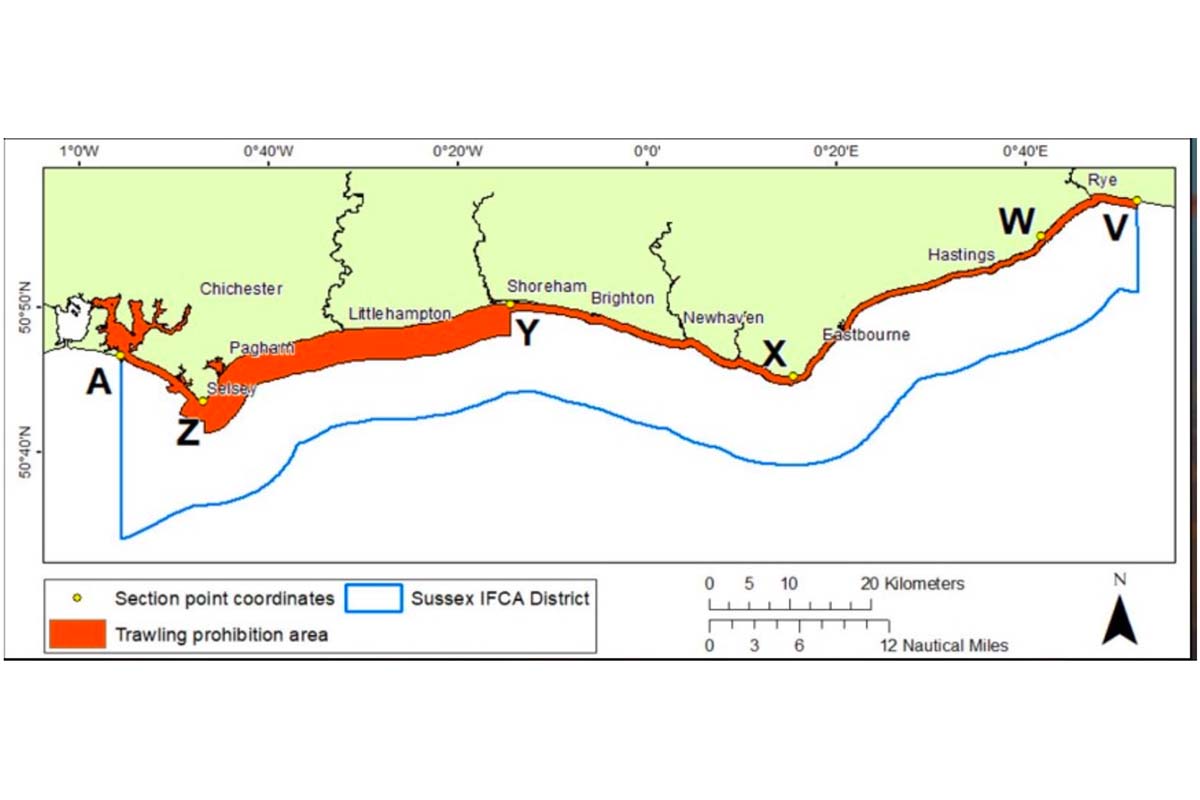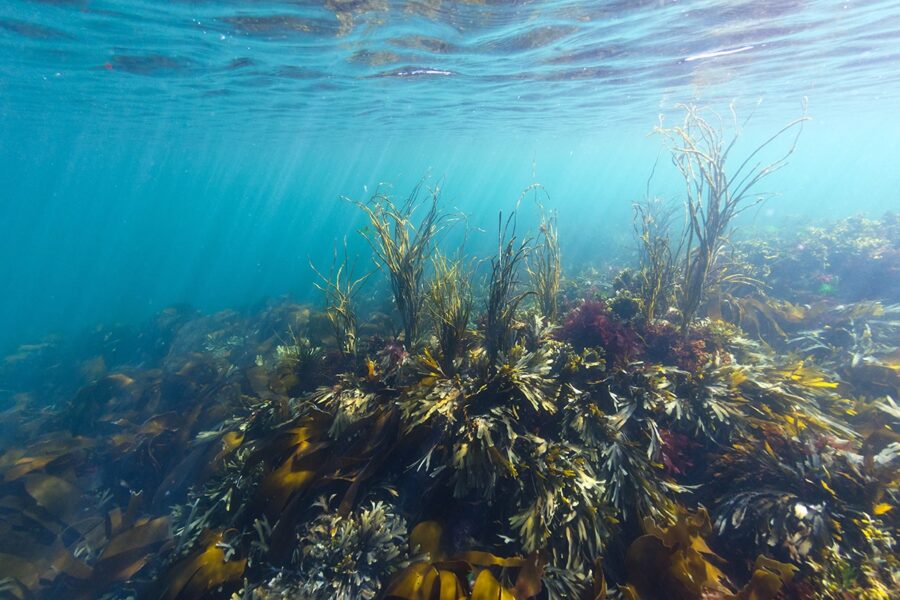Sussex Wildlife Trust and the Blue Marine Foundation, as part of a collaboration within the Sussex Kelp Restoration Project, are asking Sussex fishers to participate in a survey on sedimentation of the seabed in the area, following growing concerns about the impact of dredge spoils in the eastern Channel.
In 2021, the Sussex IFCA Nearshore Trawling Byelaw closed an area close to Brighton Marina to all trawling activity, including a large area out to 4km between Selsey and Shoreham by Sea, and the Selsey Bill and the Hounds MCZ.
The byelaw, which forced several trawlers off some traditional towed ground, has resulted in the recovery of some areas of kelp, as documented by the project at a recent workshop. However, a much wider concern has been widespread reports of siltation of many areas of the eastern Channel, as a result of dumping of aggregate spoils.

The Sussex IFCA no-trawl zone. (Image: Sussex IFCA)
Jim Partridge, a fishing industry representative on the Sussex IFCA, and owner of the Shoreham vessel that supplies his shop in Shoreham Harbour, told Fishing News: “Twenty-five years ago, the kelp forest here was so thick that in many cases even working static gear was impossible. But it provided great habitat for juvenile fish, lobsters and crabs, and was a real asset to the overall fishery.
“Since the sedimentation began, we’ve witnessed not only the chalk and rock features silting up, but silt on the pots, and a decline in the kelp coverage, to a position where now we are seeing vast areas of what was kelp forest, completely bare.
“It is no coincidence, in my view, that at the same time, we have seen lobster catch rates plummet. Juvenile lobsters have nowhere to hide, and there is an explosion of congers on the area which have a new source of food. On top of that, many of the few lobsters left are either weak when caught, or are dying soon afterwards.”
The Sussex Sediment Sea User Survey aims to gather further information from sea users including commercial and recreational fishermen, divers, snorkellers and surfers.
Observations of sediment changes and impacts on fisheries, recreational activities and marine life will help build a picture of where sediment levels may have changed, over what timescale and from which key sources, so that actions can be effectively targeted.
The short survey is online here, and there’s no requirement to provide any personal details unless you wish to receive a copy of the survey report. It closes on 28 February.
For more information, contact Sam Fanshawe at: sam@bluemarinefoundation.com
Fishing News will be taking a wider look at the reasons for the decline in pot fisheries in general, and lobster in particular, in a forthcoming issue, including an investigation into dredge spoils disposal both from Brighton Marina and further afield. Please contact us at: fishingnews.ed@kelsey.co.uk if you have any views or comments you would like to contribute to this.








